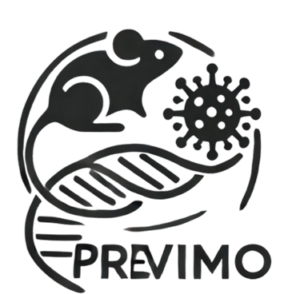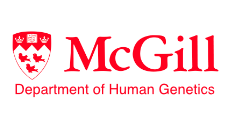What do we do
Infectious diseases remain major contributors to morbidity and mortality worldwide. Several immune-mediated diseases in mice mimic disease pathogenesis in humans thereby making mice useful in basic research as well as translational research to evaluate impact of mutations in vivo.
The mouse is a valuable pre-clinical model, however the usefulness of the mouse as a model for disease depends on rigorous experimental design, execution, data analysis and statistics. Members of PreViMo have over 20 years of experience developing and specializing in the use of viral infectious disease mouse models relevant to human diseases.
We provide expertise, state-of-the-art infrastructure and services to enable dissection of genetics and complex biological and immunological pathways underlying the host response to viral pathogens.
Our services are in 3 main categories:
- Full execution of in vivo viral mouse models: study design, experiment execution including mouse infection, monitoring and sample collection, data acquisition and statistics
- Full execution of in vitro viral infections: using primary cells or immortalized cell lines, primarily for drug testing or viral inactivation assessments
- Providing infrastructure and training to use Containment Level 3 (CL3) facility*: for clients intending to conduct independent work with RG-3 Human Pathogens
*CL3 Facility is currently under renovation for major upgrades (infrastructure and equipment) with anticipated reopening in March 2025.
At PreViMo we conduct in vivo RG-2 viral infections in CL2 mouse rooms located on the 2nd floor of the Goodman Cancer Research Center (GCRC) vivarium and we perform downstream analysis in the CL2 laboratory on the 3rd floor of the Bellini Life Sciences Complex.
PreViMo conducts in vivo and in vitro RG-3 viral infections in the CL3 facility which occupies 1,000 square feet on the 2nd floor of the GCRC vivarium and consists of four adjacent labs, including wet labs and animal housing rooms, meeting the highest safety standards defined by the Canadian Biosafety Standards.
Our well-established mouse models allow researchers to:
- Test and characterize candidate genes and the impact of pathogenic mutations on physiological and immune function in mice
- Investigate potential pleiotropic effects of specific genetic risk loci
- Use mouse models of human infectious diseases to identify and test novel drug therapies as well as testing vaccine candidates
Fee-for-service and client assistance that we provide:
- Training
- Use of the CL3 Facility
- Study design
- Consultation
- Recommendations and troubleshooting
- Study execution
- Data acquisition, analysis and statistics
Viral Infectious Disease Models
Our infectious disease models include a wide range of Risk Group-2 and Risk Group-3 human viral pathogens to evaluate host-pathogen interaction.
Animal models can be tailored to meet study design. We also welcome the opportunity to develop new mouse models of viral infectious diseases!
Functional and outcome analysis offered:
- Semi-quantitative clinical scoring
- Body weight analysis
- Enumeration of pathogen burden from target tissues
- Time point studies
- Survival analysis
- Collection of blood and/or solid organs for downstream histopathology lesion scoring, flow cytometry, molecular and biochemical analysis
- Specific organ functional assessments including lung and heart (FlexiVent and Oximeter)
- Immunoassays including ELISpot and Neutralization assays (to be added in the future)
Well-established Viral infectious mouse models:
Respiratory infections:
- Influenza virus (H1N1, H3N2)
- Sendai Virus (SeV)
- SARS-CoV-2
Vector-borne viral infections:
- Dengue Virus (DENV)
- Mayaro
- Zika
Herpetic Infections:
- Herpes Simplex virus (HSV)
- Cytomegalovirus (CMV)
Neurological Diseases:
- Vesicular stomatitis virus (VSV)
- Coxsackievirus
Upcoming Viral infectious mouse models:
- Chikungunya virus (CHIKV)
- Highly pathogenic avian influenza (H5N1)
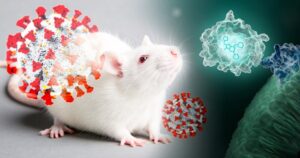
Use of CL3 facility
- Providing the CL3 facility infrastructure and the necessary training for research involving RG-3 infectious human pathogens.
- List of Equipment (CL3)

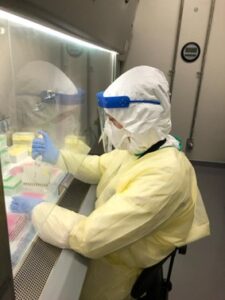

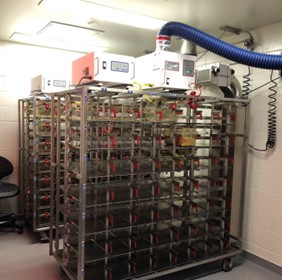
Research Guidelines and Ethics
All mouse experiments abide by the guidelines of the Canadian Council on Animal Care and are approved by the McGill University Animal Care Committee. CL3 protocols are in compliance with the highest safety standards defined by the latest edition of the Canadian Biosafety Standards and Guidelines approved by Public Health Agency of Canada (PHAC) and Canadian Food Inspection Agency (CFIA). We provide support to researchers to comply with ‘ARRIVE’ guidelines to improve design and reporting of animal research studies.
PreViMo Leadership
Dr. Silvia Vidal, Director
Email: silvia.vidal@mcgill.ca
Dr. Mitra Yousefi, Manager
Email: mitra.yousefi@mcgill.ca
Mitra Yousefi
Manager
Tel : 514-398-5100
Email: mitra.yousefi@mcgill.ca
Partners


